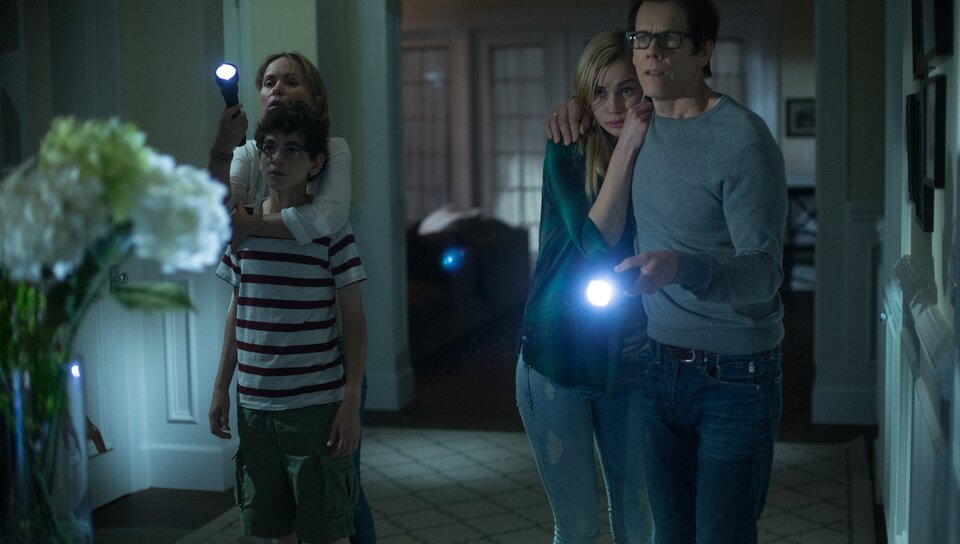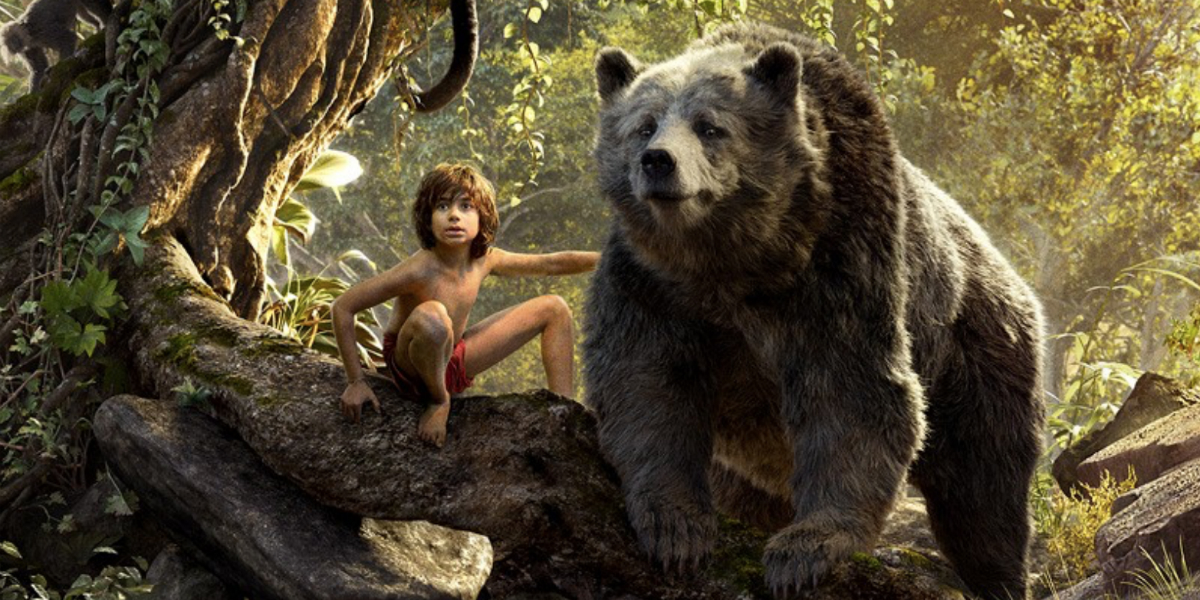Blumhouse Productions has defined their brand by creating
low to mid budget haunted house thrillers that essentially combine the same
elements from “The Shining,” “The Poltergeist” and “The Exorcist.” James Wan,
so far, has embraced this style of pop horror filmmaking most successfully with
his “Insidious” pairing and the “The Conjuring.” Scott Derrickson’s “Sinister” had its moments
as well and “The Purge” films seem to have a consistent draw that perplexes me.
Most of Blumhouse’s other output has been spotty and it’s become all the more
apparent that their formula is rapidly becoming stale. Their latest “Poltergeist”
rip off, “The Darkness,” is just as lazy and bland as the title suggests.
Kevin Bacon and Radha Mitchell play Peter and Bronny Taylor,
the parents of a dysfunctional American family—Mitchell is a recovered
alcoholic and Bacon once had an affair. Their children consist of a pre-teen
boy named Michael (David Mazouz) who lives with a form low-functioning autism
and their seventeen-year-old daughter Stephany (Lucy Fry) has body image
issues. Shortly after a trip to the
Grand Canyon, where Michael found and secretly brought home some ancient Anasazi
artifacts, the family is slowly tormented by a dark presence in their home.
Michael’s idiosyncrasies have become more violent and disturbing as everyone
else in the house has experienced the psychological terror of strange noises, dirty
hand prints, weird smells, barking dogs and self-starting water faucets.
Forget for a moment that the movie’s handling of Native
American culture and the subject of autism is surprisingly regressive, it’s
also presented in a way that’s painfully boring and completely without
entertainment value. It’s becomes clear that the filmmakers struggled to find
any real moments of tension or fear in this lifeless slog and instead tried to
make up for its lack of real scares with an annoyingly manipulative score, full
of random jolts and ineffective moodiness. Bacon and Mitchell are trying their
best to take this insipid, underwritten material seriously and guest star Paul
Reiser, as Bacon’s misogynist boss, is trying his hardest to not take it
seriously, but even when the character moments occasionally slips into “When a Man
Loves a Woman” it’s undercut by the hapless shlock of the rest of the movie and
transformed into unintentional Lifetime melodrama.
Mazous, known by most as young Bruce Wayne on television’s “Gotham,”
is given nothing to do here and his performance of a person with a real and complex
condition is played with the seriousness of an after-school special. Hell, even
the blatant transphobia of the first “Sleepaway Camp,” was at least shocking
and audacious, even if a bit dated by today’s standards. Both the story’s
autism angle—how are parents supposed to tell the difference between
normal-weird and possessed by ancient Native spirts-weird—as well as the
production’s Anasazi stylistics are never exploited in way that registers above
cliché and tired.
At one point a large dog suddenly attacks the daughter in
her bed. That was kind of cool.
It’s hard to say what went wrong here. Director Greg McLean
made of my favorite modern horror films with the Aussie serial killer thriller “Wolfe
Creek” but none of the style or the simmering tension of that project is transferred
into this PG-13, overblown “Goosebumps” book. The shoddy screenplay isn’t
helping anyone and the movie’s clear and direct influences loom large in sullen
judgement.
Grade - D
Originally Published in the Idaho State Journal/May-2016
Listen to this week's episode of Jabber and the Drone to hear more conversation about "The Darkness."





